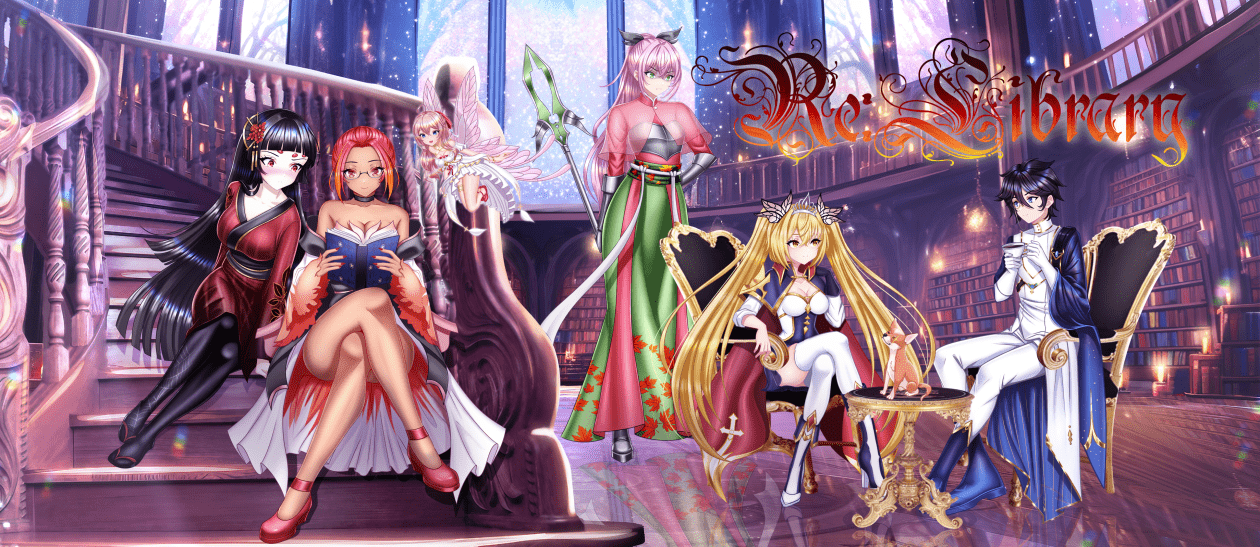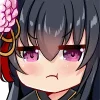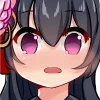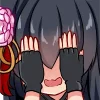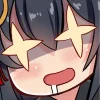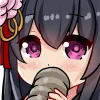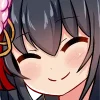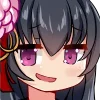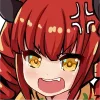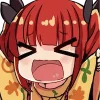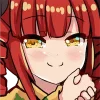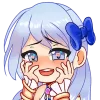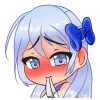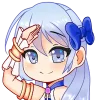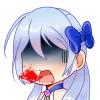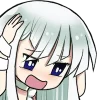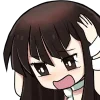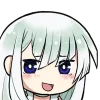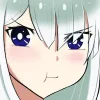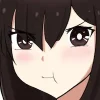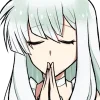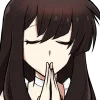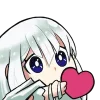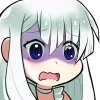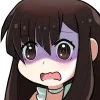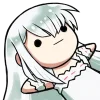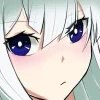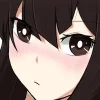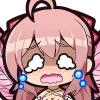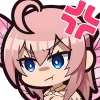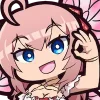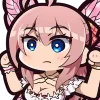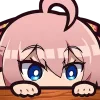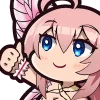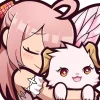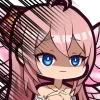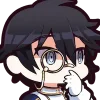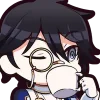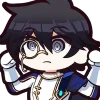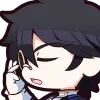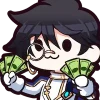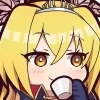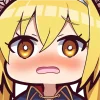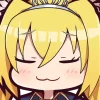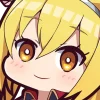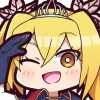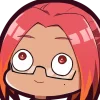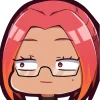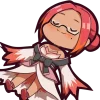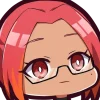| Author: Natsuni Kotatsu | Original Source: Syosetu |
| Translator: Mui | English Source: Re:Library |
| Editor(s): Robinxen | |
This arc will contain depictions of disasters. They will be loose representations at the expense of anxiety and concreteness, but still, keep it in mind.
This is the final arc, “The Guild’s Cheat Receptionist”.
This world, Ratol Wesvania, was the very definition of deism.
Although that might not be the best description, the world operated according to laws established by the god (not the actual existing gods, but the creator god), and the god did not intervene at the time. So, it was accurate to say it aligned with the concept of deism.
To begin with, this world was not an Earth-like planet.
While it had a spherical shape, like a typical celestial body, there was no fixed star, or satellite, or even any other stars twinkling in the night sky.
Humans, monsters, and nature, all were indirectly regulated by management towers called the World Trees, creating a world that functioned in a perfectly efficient cycle.
Undoubtedly, it was a sandbox created by god.
Due to this fact, or perhaps as a result of it, everything that occurred in this world held significant meaning.
For instance, the recent upheaval triggered by the Empire.
From a micro perspective, it appeared to be an issue concerning populism and the imperial family, but when viewed from a macro perspective, it was a complex interplay of God factors, Dragon factors, and Ogre factors… a conflict rooted in distant relations.
Gods triumphed over dragons, dragons over ogres, and ogres over gods.
Even dragons, with their immense magical power, couldn’t surpass the gods that influence the very phenomenon of the world.
No matter how resilient the physical body of an ogre may be, they couldn’t breach the untouchable barrier of dragons called magic.
And the hammer of gods, too, was meaningless before ogres who were free from the wedges of the phenomenon.
The rivalry between these forces, not only within the Empire but throughout the entire world, was what we referred to as “the natural order.”
Those unexpectedly born with Dragon factors distinguished themselves with their great magical powers.
Empowered by the effect of Elation contained within their factors, they ignited the spirits of those around them. However, that uncontrollable power led to reckless behavior, ultimately leading to chaos.
And when chaos reached an extreme a hero would arise—the chosen one possessing God factors. Brandishing weapons reserved only for them, they would wield god-like power and vanquish the source of the turmoil.
It would be a happy ending if it ended there, but things never went like that in the world… They were then betrayed by those who feared their power.
The blessing of immortality, bestowed upon them by the God factors, resulted in the loss of their loved ones, leaving their hearts burdened with grief. They were met with aversion and persecution from the people around them, shunned for their very existence.
In such circumstances, they grew to despise and harbor hatred toward humanity, and in the most extreme cases, they bared their fangs at it.
Alternatively, some succumbed to the temptation of their elevated status, becoming arrogant and looking down upon others, seeking to assert dominance. These heroes, driven to madness, met their demise at the hands of the people.
If they were slain properly, perhaps it would end there. However, those heroes who managed to survive, defying death, unleashed even greater chaos upon the world.
It was not unreasonable to think that they were further consumed by rage when they were told by the world they despised, the world they once looked down upon, that they were unwanted.
Nevertheless, it was within this twisted world that mutated system bugs… the Ogre factor holders were born.
Whether it was as assassins or rebels, they would ultimately kill the God factor holders. And then, they too would die. Their birth often occurred in a world consumed by chaos.
The effect of Madness they carried within themselves would drive them to insanity, and those who had brought an end to the chaotic world as possessors of Ogre factors were not permitted to remain as the new heroes.
Thus, both the heroes who remained sane and those who succumbed to madness were slain by other maddened humans. Whether they were merely greedy humans or humans endowed with Ogre factors, the outcome remained unchanged.
Sooner or later, the heroes would perish, bringing about a fleeting period of peace. …Until the next upheaval unfolded.
However, this narrative represented the worst-case scenario for the people of that era. It should be noted that not all factor possessors were necessarily targeted for elimination based solely on the principle of factor rivalry.
Naturally, there were instances where individuals quietly met their demise without entangling those around them.
The examples provided earlier, where they were killed in accordance with the factor rivalry, served as illustrations of the imposing force of fate or a corrective influence coming into effect.
It was the law that God decided the world should follow. And those were precedents of them killing and being killed based on said law, regardless of whether they wished to or not.
Considering that, in all likelihood, Torsti was born as a response to the anticipated intensification of the Empire (God factor). The Empire’s situation may have been a progression aimed at forcefully halting that intensification fueled by the God factors.
Viewing it from this perspective, I believe Torsti was a victim of destiny, bestowed with Ogre factors as a result of the corrective force.
Dragon God, Ogre God, and Emperor.
With these three elements entangled in the modern era, it may prove challenging to fulfill Torsti’s aspiration of a nation that does not rely on divine swords.
Nevertheless, if we were to give up merely due to the difficulties, the potential for change, the ability to alter the course of events, would be reduced to nothing.
Now, let’s shift our focus from the past to the future and consider what lies ahead.
It appears that the Apostle wants to designate me as the mediator—to enshrine me as a “God”.
Given that the great spirits were connected to the World Trees by the roots, it seems that they were serious when they referred to me as a “goddess,” despite my consistent denial.
It’s quite an inconvenience, to say the least.
As the Apostle claimed, I possessed the cheats to triumph over any number of evil gods. Moreover, I could also dodge the Apostle’s aim by defeating those evil gods and monsters without anyone finding out about it.
But I refuse. I won’t do it.
I strongly suspect that the Apostle’s true aim is to showcase my ability to vanquish the evil gods, possibly by making it public or revealing it, and ultimately, to thrust me into the spotlight.
After all, when faced with insurmountable problems, most people tend to abandon their efforts and seek assistance from others.
Hence, if my abilities were to become known, it could potentially lead to people relying on me as someone with cheat abilities, especially if the Apostles’ warned “impending catastrophe” is something beyond human intervention.
Moreover, it’s not impossible to imagine that upon learning about my triumphs, there might be individuals who worship me.
Much like the Dragon God who’s revered in various regions, beings with power beyond human understanding… gods actually exist in this world, after all.
…Anyway, let’s set aside what would happen to me. In any case, the Apostle was most likely to manipulate the situation in such a way. His ultimate goal was to “unite the world.”
This time, the Apostle chose to directly appeal to me, as he believed it to be the most effective tactic in my case.
By appealing to my emotions, cutting off any possible retreat by eliminating the option to turn a blind eye, and then presenting his demands, he created an illusion that resolution and agreement are synonymous.
It’s almost like he’s a swindler, I hate it.




